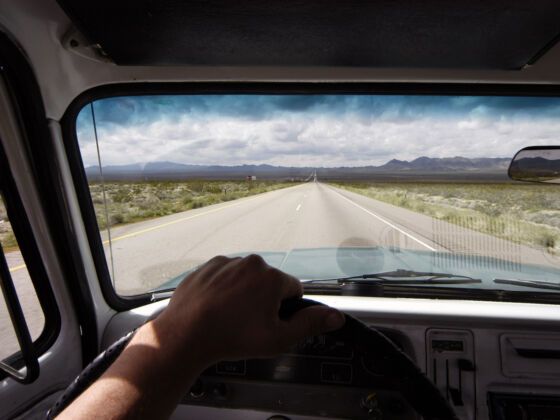TODAY IS THE BIRTHDAY OF the most important traveler of the modern era. On March 12, 1922, Jack Kerouac was born in Massachusetts. 35 years later, he’d publish On the Road, which would become a contender for the “Great American Novel” title, and which helped launch the modern travel movement.
Kerouac lived a strange life. He was born to a French-Canadian family, and went to school on a football scholarship. He dropped out when he was done playing, enlisted, and lasted in the Navy for just over a week before being honorably discharged for having a “schizoid personality.” When he got out, he helped a friend dispose of the body of a man the friend had killed, and then turned himself in. When his bail was paid, he moved to New York and puttered around with the people who would come to be known as the Beats. He was married for a short period of time, got divorced, and then he started traveling around the country with his manic friend, Neal Cassady.
